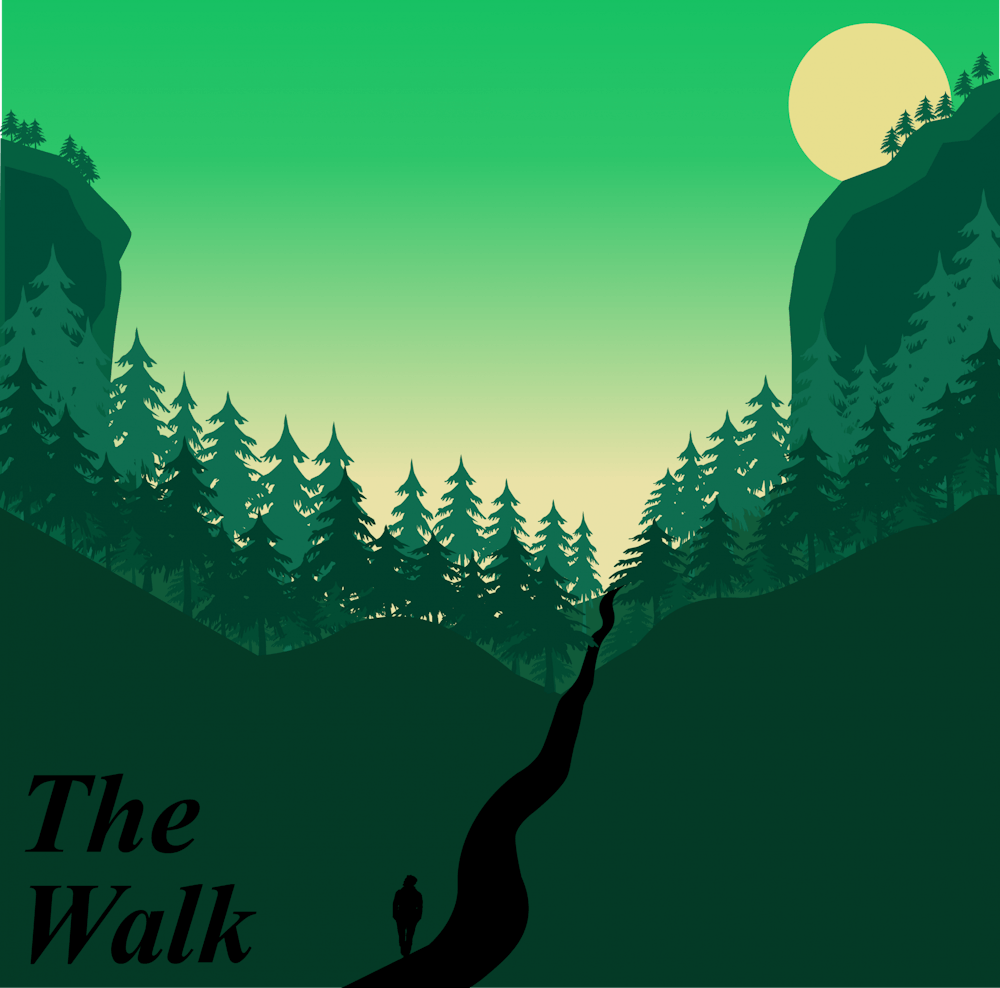Editor's Note: The views and opinions expressed in this article do not reflect those of The Collegian.
Hello everyone, and welcome to The Walk.
First and foremost, this column is an open space for principled thought at the University of Richmond. This goal issues from the understanding that knowing oneself and one’s neighbors is important, but also knowing that until somebody writes something down, those two aims are difficult to achieve. This column is a place for you to write something down.
In the last paragraph, I used the phrase “principled thought.” That simply means that your writing should be about your principles. What guides your life? What do you value? How do you decide what is right? You can answer any of these questions or anything like them. Tell us what you believe and why.
This could be your religion, your moral framework, a set of maxims — just teach us about yourself. The only rules that I’m going to set forth are that you write using “I” statements to avoid attacking anybody’s beliefs and that you approach this project with love and compassion for yourself and your neighbors. We are aiming at community and understanding.
I’ll also be writing every week about my personal journey to build my principles, but actively encouraging you, the UR community, to reach out to me to write guest columns to get a variety of viewpoints. If you think you might be interested in writing, please reach out. I’ll be happy to be of any service I can.
As for my personal principles, I think it makes sense to communicate those first through some labels, and then in subsequent weeks I'll answer more specific questions about what they mean and the implications that believing in them have on my life.
I am a Quaker and compassionate utilitarian. Quaker is probably a bit more familiar, so I’ll start there. I’ll save my explanation of compassionate utilitarianism for another week.
Before getting more specific, I’ll explain why I believe in the supernatural.
This belief stems from the rejection of determinism. Determinism is a doctrine that says every event happens because of events external to the will, because nothing is in fact chosen by a “will.” Rather than explaining events as being caused by the will, determinism says the whole of existence could be perfectly modeled like a massive chemical reaction that has a determined course and outcome.
I reject determinism, because if determinism is true then I had no choice in making the assumption that it is false. If determinism is false, then my assumption about determinism will have been accurate, and the parts that depend on that assumption will be intelligible. The most noteworthy belief for me that is built on the rejection of determinism is my belief in the soul.
Determinism relies on the claim that everything is natural, so rejecting it requires the existence of the supernatural. I believe in a supernatural “soul” or “spirit” or “whatever-you-want-to-call-it” in us that is not governed by natural laws. This is the seat of the will.
Enjoy what you're reading?
Signup for our newsletter
I believe that God places this capacity in us, and it is from Him that we receive the capacity for will. Within the realm of believing in God, the Religious Society of Friends (Quakers) is a Protestant Christian sect.
The guiding principle for Quakers is the belief in the inner light, which is the presence of God in every person. The inner light is the part of us that is never separated from God; it is the part of us that is Him. The inner light allows people to communicate with God and to receive continuing revelations. The inner light guides me in my efforts to create and maintain my ethical framework.
The inner light doesn’t just inform our own capabilities. It also carries with it implications for how others ought to be treated. Because everybody has the inner light, they are deserving of respect and care.
As Jesus said in Matthew 25:40, “Truly I tell you, just as you did it to one of the least of these who are members of my family, you did it to me."
Relatedly, when I think about Matthew 22:39, “You shall love your neighbor as yourself,” I define "your neighbor" as everybody because we are all connected by the inner light. These two passages are among the reasons why Quakers favor nonviolence and why I am working on trying to be accepting of people's different perspectives and motivations in my own life.
I hope that you all will find this project as compelling as I do, and maybe even feel moved to send some work of your own my way.
To contribute to The Walk, email Opinions and Columns Editor Conner Evans at opinions@thecollegianur.com.
Contact columnist Cal Pringle at cal.pringle@richmond.edu.
Support independent student media
You can make a tax-deductible donation by clicking the button below, which takes you to our secure PayPal account. The page is set up to receive contributions in whatever amount you designate. We look forward to using the money we raise to further our mission of providing honest and accurate information to students, faculty, staff, alumni and others in the general public.
Donate Now



